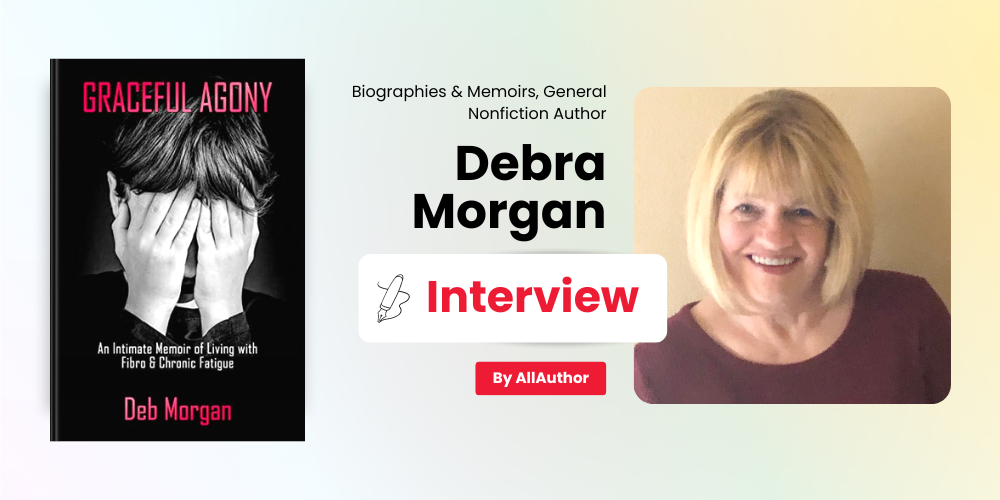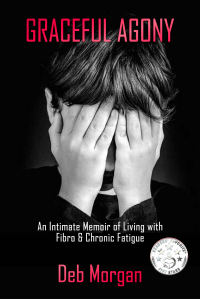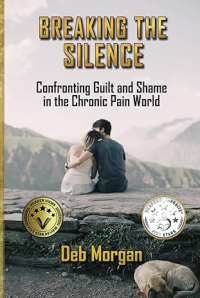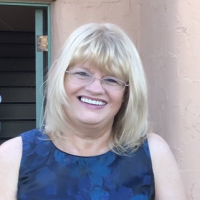Debra Morgan Interview Published on: 31, Jul 2023
 What is one lesser-known fact about your childhood?
What is one lesser-known fact about your childhood?
I started drinking at 12 years of age. I had much young abuse, so my party days started before there was a party.
Moving back to Arizona to be closer to your grown children and grandchildren shows the importance of family to you. How has their support and presence in your life contributed to your healing and growth?It can be hard to measure the support from your children, they do not like to see me getting older, and they have such a busy life that I recognize it instead of expecting it anymore. My Grandchildren are my heart I spend weekends with them in order of age as much as I can. I have six, still young enough, but they all still love being with me, and that makes my heart feel good. I feel better being around them.
As a survivor and warrior, how do you define resilience, and how has it played a role in your own life?I guess that I don’t see myself as a warrior as much as I do others, even though people say that I am, I had to learn to be a survivor and warrior at an incredibly early age. It seems to have grown in my soul. It has helped me never to stop and always to do what I can to help others with this disease. I forget until I talk with someone who has this that many of us did not grow up with abuse or haven’t been an addict. These are things that help me. We must reach deep inside to find it sometimes.
How has your advocacy work and raising awareness about addiction and fibromyalgia influenced your writing?It has helped me to see into other sufferers' lives and what they have to live with. Listening to others is the best way to learn how I can relate to others in my writing.
Your new book, "Graceful Agony," is about real-life journeys through addiction, fibromyalgia, chronic pain, and mental health. Could you tell us more about the inspiration behind this book and what readers can expect to find in it?This is my first book on this portion of my life. I will be writing about my Childhood through addiction and how having a mental health component exacerbated everything in my life. Looking at it now, my story shows me what one can really get through and still have a happy, secure life.
You mentioned that your books are based on your personal experiences. How did your own journey through addiction, fibromyalgia, chronic pain, and mental health challenges shape your writing?I just have written honestly; I do not hold much back. My writing is shaped by how I was, whether good or bad, horrifying my writing is who I am from what I have gone through.
What is the main message or takeaway you hope readers will gain from your books?I wrote this book first because I really just wanted to help women, young and old, with what they are going through by telling them my story. I hope that Graceful Agony has done that and will continue to in the future. I also wrote it with references that I learned in my journey that I wish someone would have imparted to me.
Writing about personal and challenging experiences can be emotionally demanding. How do you cope with the emotional aspects of sharing your story?I watch something on TV that I can really get lost in, even if I have watched it for the 900th time. I have to get out of my head when I get done writing for that particular time period, I am exhausted. It is hard to remember sometimes what you will run to as you write about it. My life memories can get pretty dark at times.
You've been featured as a guest on podcasts and radio shows to raise awareness about addiction and share your recovery journey. How has this advocacy work impacted you personally, and what message do you aim to convey to the audience?I love being on either of those I can just tell my story or answer their questions, and it flows so easily for me. I try to let everyone know that writer or not, they have a story, and I surely never thought I would write a book, so give it a try or get it out by writing stories to yourself that you may never share but when you read it in 2 days’ time, you will see that you sound different than you did when you wrote it. That is why I kept going.
Maintaining sobriety since 1993 is an incredible accomplishment. Can you share some of the strategies or support systems that have helped you stay on this path of recovery?I used every tool that rehab gave me, was shattered and put back together again, and still always remember it is one day at a time, and this too shall pass. The days turned to months and months to years, but I never wanted to be that person again.
Could you discuss the importance of support and community for individuals facing fibromyalgia and chronic pain? How have you found support in your own journey?The medical community could do much more than they have, which is very little. Just like recovery, people with chronic illness and pain should have places to go to talk about what they go through. With very few online groups and because it is not face-to-face, we have to be very careful about how the group works. There are not really any in-person groups, there is not a place that acts as a place that could help set up meetings for people in areas to meet as AA or other programs do.
You mentioned your passion for reading, painting, and traveling. How do these activities contribute to your overall well-being and recovery?I have to have something to plan on and look forward to, even if it is something easy that others might do every day that I may not be able to do most of the time.
What advice would you give to someone who is currently facing their own challenges with addiction, chronic pain, or mental health issues?If you have an addiction, find a meeting for whatever it may be, either in person or online. My Fibro Team is where I go, and it is amazing, and the people are great. I go there for my Fibro and Chronic Fatigue, and they have people who have all kinds of painful diseases. For Mental Health, call your insurance or go to NAMI, which is the place for mental health care, and they have tons of information. Also, there are many mental health Psychologists who have groups and even rehabs to figure out what you need and can recommend a psychiatrist.
How many plot ideas are just waiting to be written? Can you tell us about one?I suggest putting out a hand-in-hand book with Graceful on how to deal with the Guilt and Shame of having a chronic pain disease. I actually have that one almost put together. I have Trapped my Life’s story, and not sure from there.
What do you think of All Author, and would you recommend it to your other author friends?All Author has so much information and tools to help a new author. I am extremely happy with the support I have gotten from All Author and the fact that you can reach social media and really help get a book out in the community. Yes, I recommend it all the time on all of my social media.
Debra Morgan is an extraordinary American author, advocate, and influential non-fiction writer whose books offer real-life journeys through the realms of Addiction, Fibromyalgia, Chronic pain, and Mental health. Deb's debut book, "Graceful Agony," reflects her passion for helping others by providing support and understanding through their struggles. Residing in Chandler, Arizona, she stands as a beacon of hope and support for those seeking solace and strength in their own battles.
 Graceful Agony: An Intimate Memoir of Living with Fibro & Chronic Fatigue
Genre: Advice & How To, Biographies & Memoirs, General Nonfiction
Graceful Agony: An Intimate Memoir of Living with Fibro & Chronic Fatigue
Genre: Advice & How To, Biographies & Memoirs, General Nonfiction
 Breaking The Silence: Confronting Guilt and Shame in the Chronic Pain World
Genre: Advice & How To, General Nonfiction
Breaking The Silence: Confronting Guilt and Shame in the Chronic Pain World
Genre: Advice & How To, General Nonfiction

